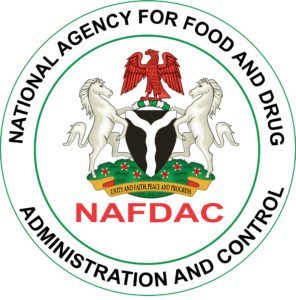We stop over 80 medicine products shipment from foreign countries — NAFDAC MD
The National Agency for Food and Drug Administration and Control, NAFDAC, has stopped the shipment of more than 80 medicine products from China and India over fraudulent activities by the manufacturers, even as Nigeria is set to begin the production of vaccines by the end of 2022.
The Director-General of the Agency, Prof Christiana Adeyeye, who spoke to journalists in Lagos on Tuesday, disclosed that the agency has procured 40 units of a handheld device valued at $57,000 dollars each, capable of detecting the quality and quantity of medicinal products in the country.
Adeyeye explained that in an effort to reduce the percentage of fake products in the country, the agency toured 19 pharmaceutical companies in China and India.
But they regretted that from the outcome, some of the products shipped into Nigeria were never tested as required by law.
Adeyeye said NAFDAC had in 2019 read a riot act to manufacturing companies in India and China that are doing business with Nigeria to either align with the country’s listing or quit.
“Earlier in my tenure, we found loopholes that some drugs were not even tested before they are brought here.
“So in September 2019, we went there and declared a riot act that if they want to trade with us and you bring something bad you will be in trouble.
“We had the list and we wrote down the lists of what we expected.
“We went to over 19 laboratories in India and China, the ones that did not satisfy our listing or specifications we removed them, one or two that we found fraudulent, we removed them.
“Since March 2020 when the agreement was signed, we have stopped the shipment of over 80 products.
“Few occasions they tried to forge our permit, we caught them because the port inspectorate is now digitalised.
“So that is how we are reducing falsified substandard medicines.”
Speaking on the production of vaccines in Nigeria, the Director-General said the government have been working towards local vaccine production even before the COVID-19 pandemic.
“We are working day and night to ensure that by the end of the year we will start manufacturing our own vaccines, but that does not mean that we will completely develop a vaccine.
“But the government also have a PPP arrangement with Biovaccines.
“While the government has 49 per cent shares, May & Baker has 51 per cent and it started a long time ago but not just for the COVID-19 vaccine.”
She said Nigeria got the green light to begin manufacturing following the agency’s attainment of Level 3 maturation of the World Health Organisation, WHO.
“Again, we are talking about local manufacturing of vaccines because NAFDAC got WHO Level 3 maturation – ML 3 – and without that, we will not be able to manufacture the vaccine.”
She said Nigeria is looking at using a modular lab, to begin with, which she said was Good Manufacturing Practice, GMP, ready lab. It is like a mobile home that is already fitted.
“We also have human capital. We have people trained in biotechnology, virology, MRI technology and we can find them at the National Veterinary Institute.
“We have capable Nigerians that have been manufacturing vaccines for years. We have the vaccine ecosystem.”
Speaking further on how the agency was working to bring down the rate of the fake drugs in circulation, she said, NAFDAC did a survey with the WHO, on the quality of medicines in Nigeria and it was found that some local companies in Nigeria were falsifying medicines and we shut them down for three months to serve as a deterrent to others.
“They lost a lot of money in their investment but it is not good for our people. Most of their products were below 100 per cent potency. Some were 70-80 per cent, we shut them down.
“In terms of levels, part of the global benchmark is to have a Scheme, where you can do risk-based post-marketing surveillance when you have 1,000 products you cannot just start testing 1,000 products.
“You will have risk criteria, it may be a sterile dosage form, infusion, injection or it’s a medicine that can break down easily.
“Antimalarial was one of most used and most faked, followed by Oxytocin used to induce labour.
“The study was done in 11 states between the North and South, we found out that we have about 9 to 10 per cent falsification and that is the latest we have now, and we are trying to expand the research to involve border towns because a lot of activities take place across our borders,” she added.
She further lamented that Nigeria has a porous border which has affected the effectiveness of surveillance.
“We have a track and trace system. NAFDAC is one of the few agencies in Nigeria that is using bar-coding to bring sanity to the supply change.
“It is a five-year strategy that the minister has launched. We have sued the technology for COVID-119. We use track and trace technology to trace wrong batches.
“It is difficult to prevent the cloning of NAFDAC numbers; we have seen some of them happening.
“We have to be vigilant as consumers and get our medicine where we have confidence. The fact that it is too cheap does not make it good.”




